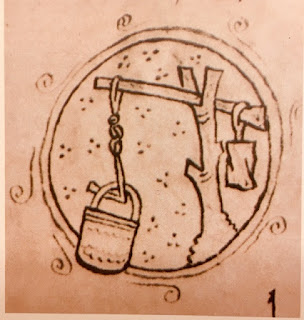Lunar Eclipse / Super "Blood" Moon of Tu b'Shevat 5779
 |
The upcoming Lunar Eclipse / Super "Blood" Moon on Tu b'Shevat
(January 20) will be visible all over North and South America. The
Eclipse occurs at 9:16pm Pacific time (12:16am January 21 Eastern,
7:15am Israel time).
Lunar Eclipses happen predictably every year, only during Full Moons. Any given Jewish Year includes between six and seven Full Moon holidays: Tu b'Shevat, Purim (Purim Katan during leap years as well), Pesach, Pesach Sheni, Tu b'Av, and Sukkot.
The Talmud discusses eclipses and their effect on the nations of this earth. From the Babylonian Talmud, Sukkah 29a:
When
the sun is in eclipse, it is a bad omen for the whole world. This may
be illustrated by a parable. To what can this be compared? To a human
being who made a banquet for his servants and put up for them a lamp.
When he became wroth with them he said to his servant, ‘Take away the
lamp from them, and let them sit in the dark’. It was taught: R’Meir
said, whenever the luminaries are in eclipse, it is a bad omen for
Israel since they are inured to blows. This may be compared to a school
teacher who comes to school with a strap in his hand. Who becomes
apprehensive? He who is accustomed to be daily punished.
The
basic idea is that lunar eclipses are trouble for the Jewish nation,
while solar eclipses mean trouble for the non-Jewish nations - yet
Israel still suffers, as the non-Jewish nations take their troubles out
on their convenient scapegoat, the Jews. This is the Talmud's poetic way
of saying that the Jewish people experience trouble in this world in
predictable, regular patterns - just as predictable and regular as the
eclipse cycles themselves. The writers of the Talmud were simply
managing expectations rather than making prophetic statements.
For those who are all tied up in anticipatory knots from reading predictions about the impending eclipse, keep this in mind: There was a full Lunar eclipse on Tu b'Shevat in 1999, 2000, 2009, 2018 as well as this year. There
was a full Lunar eclipse on Purim in 2007 and on Purim Katan in 2008,
as well as on Sukkot 2014, Pesach 2015, and Sukkot 2015.
With
anywhere from six to seven Full Moon Jewish holidays per any given
year, and anywhere from four to six (depending on the year) eclipses
(solar and lunar) per annual eclipse cycle (there's NEVER a year without
eclipses!), the statistical likelihood of an eclipse falling on a
Jewish holiday is predictable and normal.
Lunar Eclipses ONLY happen on Full Moons. The term "Super Moon" is used when a Full Moon is at perigee (the closest it comes to Earth during the year). But not all "Super Moons" come with an Eclipse. A "Blood" Moon occurs during an eclipse when sunlight is filtered through the Earth's atmosphere. This eclipse is also being called a "Wolf Moon," which is one of the Native American names for the mid-winter Full Moon of January. Some tribes call it the Full Snow Moon. Not all "Wolf Moons" (or Full Snow Moons) or any other name for a Full Moon feature a Lunar Eclipse.
January's lunar eclipse comes two weeks after the Solar Eclipse / New Moon
which inaugurated Chodesh Shevat. This year (5779) Chodesh
Shevat began smack in the middle of Solar Capricorn, it was kicked off
with the Solar Eclipse / New Moon conjunct transiting Saturn on January
5th and 6th. Less than a day later, Uranus stationed Direct at 29
degrees (the “ultimate” or “critical” degree of any sign) of Aries after
his latest Retrograde period, which began last August. This makes Chodesh Shevat 5779 extra-powerful.
Shevat is the month associated with Aquarius. Both Uranus )the modern planetary ruler of Aquarius) and Saturn (the classical planetary ruler of Aquarius) are exerting pressure in the effort to bring about change
– Saturn in his slow and steady way, Uranus in his abrupt, sudden, and
surprising way. These Celestial Titans are tag-teaming in the Cardinal
(initiating) signs of Capricorn and Aries (aided by Mars’ recent ingress
into his home sign) to overcome the tectonic pressure generated by
fear-based resistance to what we all know in our heart is inevitable
change.
Comfort
zones will be shaken, concepts about security upended, definitions of
both “ally” and “enemy” will be reconsidered, ideals will be challenged.
The universe is sending a memo: did you receive it yet? The times, they
are a-changin’.








